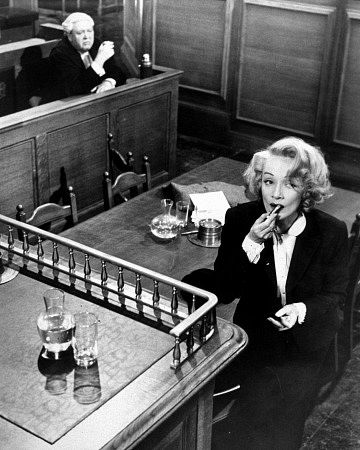So read the title of an e-mail from Paul Moravec, composer of The Letter, that I received late last night. Here’s what it said:
I’m ready to unleash Subito [the publisher of The Letter] on this document and get it into print. I could keep tinkering away at this thing forever, of course: I’ve got to call it quits at some stage and that point has arrived. (It’s also in the contract.) I’m satisfied with it as is…When a publisher’s draft is ready, we’ll both get our own hard copies to mark up and return for the final print-ready version.
Translation: Paul has finished orchestrating The Letter and is ready to transmit the manuscript to Subito Music. Once it’s set up in type, we’ll proofread it, after which the orchestral score will go to press.
 Paul was still tinkering with the score, as well as double-checking the edited text of my libretto, well into Sunday evening. At 10:13 he sent me this e-mail: “Why alter the second time the judge asks about the verdict and not the first time? I think they should be identical.”
Paul was still tinkering with the score, as well as double-checking the edited text of my libretto, well into Sunday evening. At 10:13 he sent me this e-mail: “Why alter the second time the judge asks about the verdict and not the first time? I think they should be identical.”
Translation: Leslie Crosbie goes on trial for murdering her lover toward the end of of The Letter. I originally had the judge singing “Gentlemen of the jury, have you reached your verdict?” before and after a hallucination scene in which Leslie imagines that the blood-spattered foreman of the jury is her dead lover. (I thought that up myself. Cool, huh?) Paul wanted to know whether a judge in British Malaya would have used the same language as an American judge, a question that threw me for a loop. Then I had a brainwave, went to Amazon, and searched the text of Agatha Christie’s Witness for the Prosecution, in which the judge says “Members of the jury, are you all agreed upon your verdict?” Operating on the assumption that Christie would have gotten that kind of detail right, I changed the libretto accordingly–but I forgot to fix the judge’s pre-hallucination speech! Fortunately, Paul caught my mistake, and now the judge sings the same words both times.
Half an hour ago Paul sent me eight Sibelius files marked FINAL, one for each scene of the opera. I’ll listen to them after I get back to New York. Right now, though, I plan to go downstairs to the pool of the Biltmore Hotel, where Mrs. T and I are staying in between seeing plays in south Florida, and take a celebratory swim. It’s seventy-eight degrees in Coral Gables, and I’m so sick and tired of blizzards, air travel, interstate highways, and looming deadlines that I feel like banging my head against the wall a couple of dozen times.
I think I deserve a break, don’t you?

 JANUARY 1 After breakfast we crossed the Grand Central Parkway, staggered onto a waiting plane, and embarked on the first leg of my first reviewing trip to Florida. I’ve never flown from New York City to
JANUARY 1 After breakfast we crossed the Grand Central Parkway, staggered onto a waiting plane, and embarked on the first leg of my first reviewing trip to Florida. I’ve never flown from New York City to  JANUARY 2 A late sleep, a late lunch, a leisurely walk on Midtown Beach (open to the public!), a drive across the Southern Boulevard Bridge to
JANUARY 2 A late sleep, a late lunch, a leisurely walk on Midtown Beach (open to the public!), a drive across the Southern Boulevard Bridge to  JANUARY 3 To Coral Gables by way of the
JANUARY 3 To Coral Gables by way of the  I’ve praised Donald Westlake many times on this blog and elsewhere, so it will come as no surprise that the news of his unexpected death, which reached me in Florida via
I’ve praised Donald Westlake many times on this blog and elsewhere, so it will come as no surprise that the news of his unexpected death, which reached me in Florida via  “The Seafarer” was seen on Broadway last season in a production that was staged in exemplary fashion by the author himself. On that occasion I described it as “worthy of comparison with the finest work of the young Brian Friel.” For an Irish playwright, that’s a 150-proof compliment. But first impressions can be deceptive, so when Chicago’s Steppenwolf Theater Company announced that it was mounting a new production, I changed my holiday travel schedule so that I could catch a performance in between flights, then drove through a snowstorm to find out whether “The Seafarer” was as good as I’d thought. Neither play nor production disappointed me. Anyone who’s seen Tracy Letts’ “August: Osage County” on Broadway knows what Steppenwolf can do, and they’ve done it again with “The Seafarer.” Randall Arney’s staging is decidedly different in tone from the Broadway production–among other things, he’s soft-pedaled the broad physical comedy that was a highlight of Mr. McPherson’s version–but equally effective in its quieter, less overtly Irish way….
“The Seafarer” was seen on Broadway last season in a production that was staged in exemplary fashion by the author himself. On that occasion I described it as “worthy of comparison with the finest work of the young Brian Friel.” For an Irish playwright, that’s a 150-proof compliment. But first impressions can be deceptive, so when Chicago’s Steppenwolf Theater Company announced that it was mounting a new production, I changed my holiday travel schedule so that I could catch a performance in between flights, then drove through a snowstorm to find out whether “The Seafarer” was as good as I’d thought. Neither play nor production disappointed me. Anyone who’s seen Tracy Letts’ “August: Osage County” on Broadway knows what Steppenwolf can do, and they’ve done it again with “The Seafarer.” Randall Arney’s staging is decidedly different in tone from the Broadway production–among other things, he’s soft-pedaled the broad physical comedy that was a highlight of Mr. McPherson’s version–but equally effective in its quieter, less overtly Irish way…. A colossal brouhaha has been stirred up by Gilbert Kaplan, who led the New York Philharmonic in a performance of Mahler’s Second Symphony last month. Kaplan, as Mahler-loving music buffs know, is a rich businessman with the sketchiest of musical training who fell in love with the Mahler Second, decided in middle age to become a conductor solely in order to perform that one piece, and has now conducted it all over the world and
A colossal brouhaha has been stirred up by Gilbert Kaplan, who led the New York Philharmonic in a performance of Mahler’s Second Symphony last month. Kaplan, as Mahler-loving music buffs know, is a rich businessman with the sketchiest of musical training who fell in love with the Mahler Second, decided in middle age to become a conductor solely in order to perform that one piece, and has now conducted it all over the world and